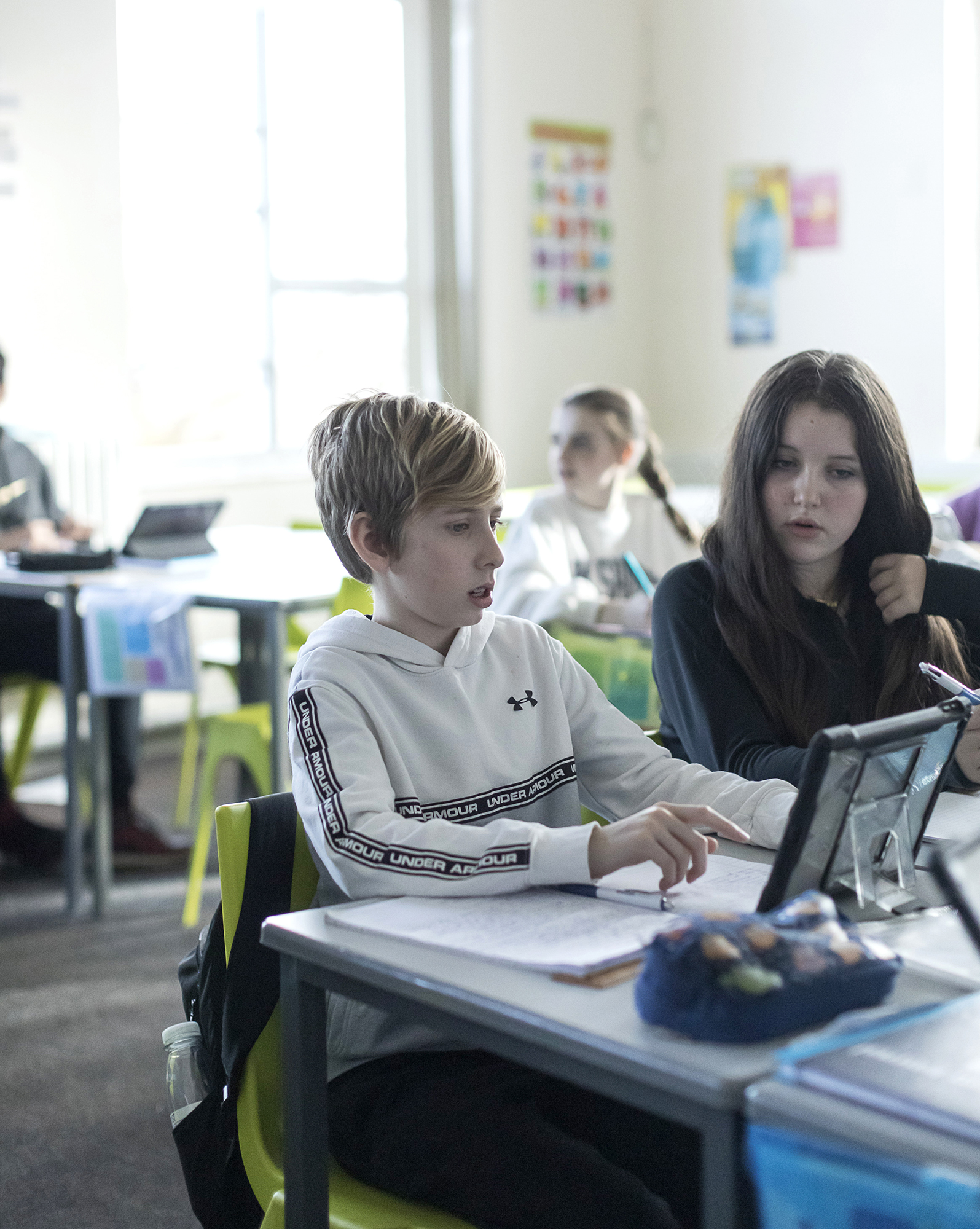Student voice is a central pillar of the school vision.
In the classroom, student voice plays an integral role. This can be evidenced in student input into lessons, choice of learning activities, classroom discussion, assessment formats, group work and project design. Teachers devise learning opportunities to gain the most from the multiplicity of learner voices.
In a whole-school context, student voice is a cornerstone of extra-curricular activities including the Student Council, the Gender Sexuality Alliance (GSA) and the school newspaper, The Sandymount Park Press. Leadership based on consensus and democratic principles is key, with students holding leadership roles within extra curricular activities.
In addition to this, students are consulted on school planning, feedback sought on curricula and changes to school life. The student is at the centre of discussions around their learning at parent-student-teacher conferences, held once yearly per year group. Planning for Transition Year has involved consultation with students, both for whole-school planning and subject planning.
Student voice allows our school values, such as community, inclusion and democracy to imbue everyday life here at Sandymount Park ETSS.
Student Council
The Student Council is an important vehicle for ensuring that students are meaningfully involved in decision-making. The Council is just one element of our overall approach to student voice, alongside other formal and informal structures and practices. We firmly believe that students have a valuable contribution to make to the effectiveness of our school and student involvement in the operation of the school is itself a valuable part of the learning process. The Student Council provides an opportunity for students to engage in a structured partnership with teachers, parents and school management in the operation of their school. Student Councils can create a sense of ownership of the school and its activities among the student population.

The Students’ Council consists of 8 members democratically elected by the student body